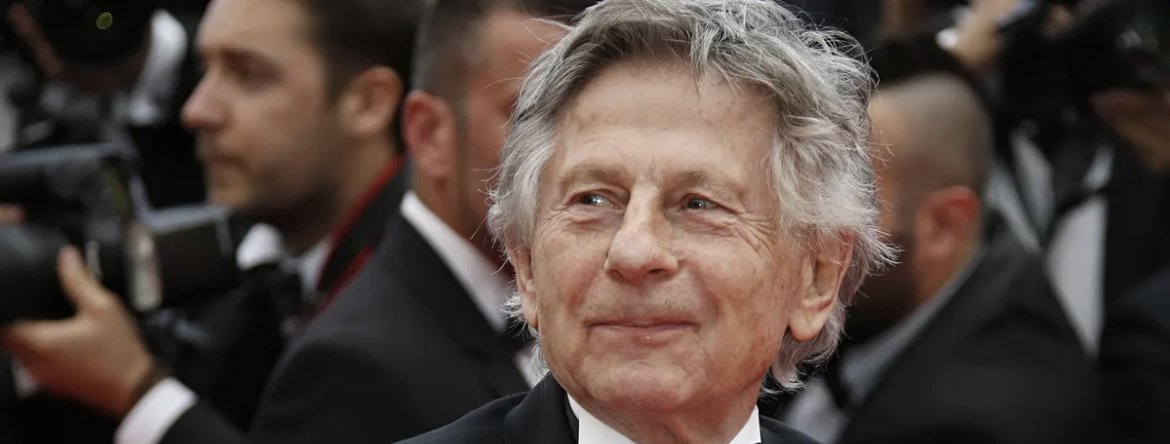French magazine Le Point has just published an unexpected face-to-face interview between Roman Polanski's wife, actress Emmanuelle Seigner, and his accuser Samantha Geimer. How odd.
The exclusive interview between Geimer and Seigner was organized by Le Point journalist Peggy Sastre.
It seems as though both women have a problem with “today’s feminism”, specifically the crusade to crush Roman Polanski. These two women seem to be going after the media in this interview and, even more so, the #MeToo movement.
Here’s Geimer, in her own words, explaining how her “victim” story has been twisted up by the media for decades now:
Let's be very clear, what happened with Polanski was never a big problem for me. I didn't even know it was illegal, that someone could get arrested for it. I was fine, I'm still fine, and that this thing was made into something bigger weighs heavily on me. Having to constantly repeat that it was no big deal is a terrible burden.
With Polanski’s upcoming “The Palace” struggling to find buyers, I just want to clear a few things up. This is neither a pro nor con writeup of Polanski’s current troubles. It’s just the facts. You can do what you want with them.
In 2009, Roman Polanski was arrested by the Swiss police, upon arrival in Switzerland, while on his way to a film festival where he was due to receive an award for his career in filmmaking. The arrest was in relation to an underage sex warrant from American authorities, dating from three decades ago.
Back in 1978, Polanski had reached a plea bargain on these accusations, but there was a lot of evidence that the presiding judge was about to renege on said agreement. Polanski left the US before he could be arrested, but not simply to avoid a jail sentence. He left to avoid being railroaded into something to which he didn’t agree.
The victim was Geimer and she has been telling news outlets, for years, to let it go and stop harassing Polanski for something that happened more than 40 years ago, "I've grown up, why can't everybody else?" she tweeted.
“Plead guilty served his time,” Geimer continued. “Abused along with his ‘victim’ by the same insane judge. I’ve grown up, why can’t everyone else.”
Geimer has also spoken about the handwritten apology Polanski sent her: “It was really meaningful to the other people around me who care about me, which then made it really meaningful to me. Anything that can make my mom feel better is something I’m grateful for,” she said.
Let’s be VERY clear here: Neither I, nor anyone else condones what Polanski did, nor do we think his original plea was harsh enough. But that’s not for us to decide. This isn’t about whether what he did deserved punishment. Of course it did. Rather, it’s about how the justice system works (or doesn’t work) in this country and the fact that there was very likely prosecutorial and judicial misconduct in the original case.
Right after his Swiss arrest in 2009, an impressive assembly of filmmakers, actors and producers from around the world signed a petition urging the release of Polanski. Over 100 signees were assembled, among them Woody Allen, Pedro Almodovar, Wes Anderson, Darren Aronofsky, Alfonso Cuaron, Jonathan Demme, Terry Gilliam, Alejandro Gonzalez Inarritu, Wong Kar Waï, David Lynch, Michael Mann, Alexander Payne, Martin Scorsese, Paolo Sorrentino, Olivier Assayas, Jean-Pierre and Luc Dardenne and Marco Bellochio
The petition was coordinated from France by the SACD, an organization which represents performance and visual artists. The petition called Polanski “one of the greatest contemporary film-makers” and his arrest “inadmissible.”
“By their extraterritorial nature, film festivals the world over have always permitted works to be shown and for filmmakers to present them freely and safely, even when certain States opposed this.”
Well, things sure have changed since then. Polanski is now a marked man, with major festivals scared of screening his latest film, not to mention his current home of France now axing him from any future Cesars ceremonies via a newly instated rule.






